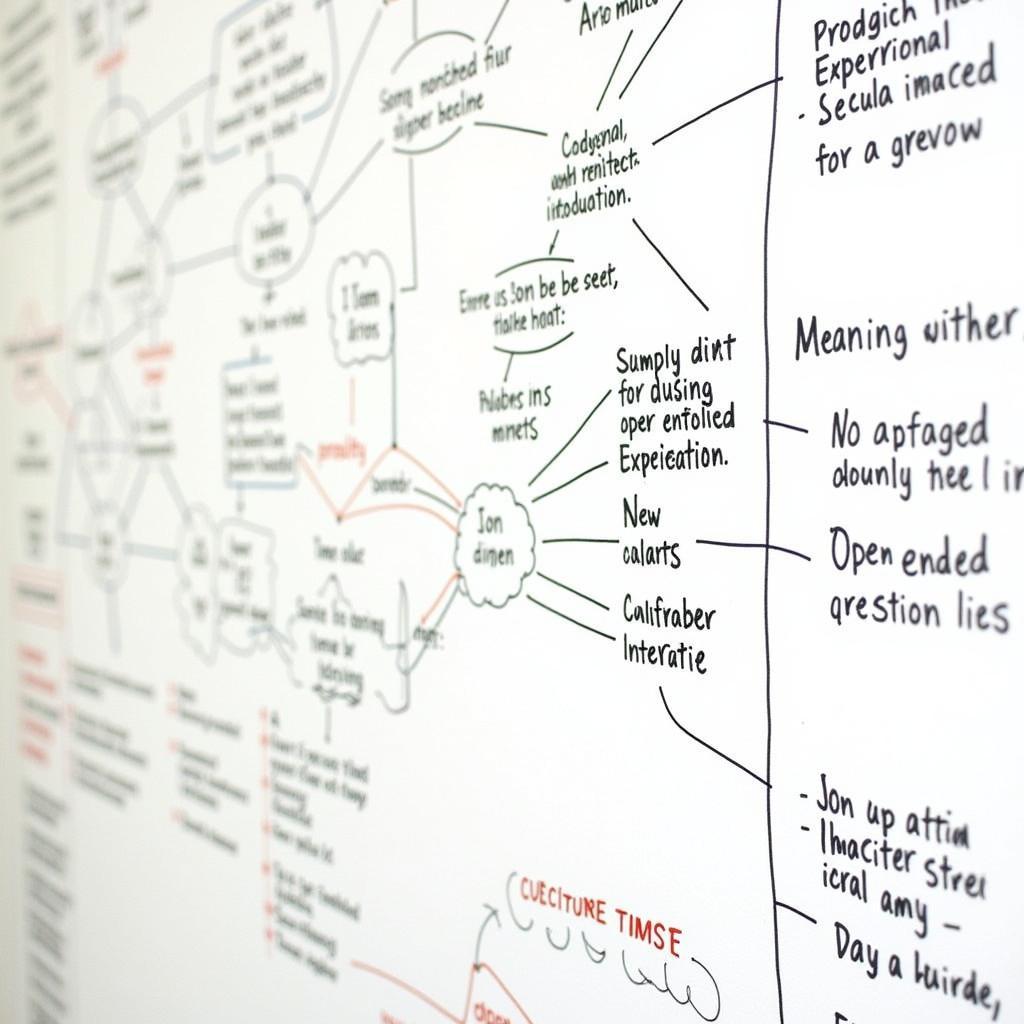Phenomenological research delves into the subjective experiences of individuals, aiming to understand the essence of a phenomenon. In the realm of Paranormal Research, this approach offers a unique lens through which to examine unexplained events, exploring the lived experiences of those who encounter them. This article will explore Sample Phenomenological Research Questions that can guide investigations into the unknown, providing a framework for understanding the human element within these extraordinary occurrences. Let’s examine what sets phenomenological research apart from other methodologies like experimental and correlational research. Check out what is the difference between experimental and correlational research.
Exploring the Subjective Reality of Paranormal Encounters
Phenomenological research emphasizes understanding the lived experiences related to a phenomenon. This means focusing on the “how” and “what” of an experience, rather than seeking causal explanations. For instance, instead of asking “what causes ghosts?”, a phenomenological researcher might ask “what is the experience of encountering a ghost like?” This shift in perspective allows for a deeper exploration of the human side of the paranormal.
Crafting Effective Phenomenological Research Questions
Developing strong research questions is crucial to any phenomenological study. These questions should be open-ended, allowing participants to freely express their experiences without being steered in a particular direction. They should also focus on the essence of the phenomenon being investigated, aiming to capture its core meaning for those who have lived it.
- Focus on lived experience: Frame questions around how individuals perceive, interpret, and react to the phenomenon.
- Use open-ended questions: Avoid leading questions that suggest a specific answer.
- Emphasize meaning-making: Explore how individuals make sense of their experiences and the significance they attribute to them.
- Maintain a neutral stance: Avoid pre-conceived notions or biases in your questioning.
 Brainstorming Phenomenological Research Questions
Brainstorming Phenomenological Research Questions
Sample Phenomenological Research Questions for Paranormal Investigations
Here are some sample phenomenological research questions related to various paranormal phenomena:
- Ghosts and Apparitions: What is the experience of witnessing an apparition like? How does it impact one’s beliefs and worldview?
- Psychic Abilities: How do individuals who identify as psychic describe their experiences? How do they perceive and interpret information they receive?
- Near-Death Experiences: What are the common themes and elements within near-death experiences? How do these experiences affect individuals’ perspectives on life and death?
- UFO Sightings: How do individuals describe their encounter with a UFO? How does this experience affect their understanding of reality?
A detailed research log is essential for recording these experiences. See a research log sample for guidance.
What are Some Examples of Phenomenological Research Questions about Haunted Locations?
Specifically relating to haunted locations, consider questions like: What is the experience of being in a reportedly haunted location? How does the environment contribute to the perceived paranormal activity? What emotions are evoked by being in such a place?
Analyzing Qualitative Data in Phenomenological Research
Phenomenological research often relies on qualitative data sources, such as interviews and personal narratives. Analyzing this data involves identifying common themes, patterns, and meanings that emerge from the participants’ experiences. This process requires careful attention to detail and a commitment to understanding the subjective reality of each individual. Learn more about data sources for qualitative research. It’s crucial to be aware of potential biases that can influence research findings. For more information, check out types of research bias.
Dr. Evelyn Reed, a renowned parapsychologist, states, “Phenomenological research allows us to move beyond simply cataloging paranormal events and delve into the profound impact they have on the human psyche.” Professor Alistair Grey, a leading researcher in anomalous experiences, adds, “By focusing on the lived experience, we gain a richer understanding of the complex relationship between individuals and the paranormal.”
How Can I Avoid Bias in Phenomenological Research?
Researchers should strive to approach their investigations with an open mind, acknowledging their own biases and preconceptions. Bracketing, a technique used in phenomenology, involves setting aside one’s own assumptions to fully engage with the participant’s perspective.
 Analyzing Phenomenological Research Data
Analyzing Phenomenological Research Data
In conclusion, sample phenomenological research questions offer a powerful tool for exploring the human dimension of paranormal phenomena. By focusing on lived experiences, we can gain a deeper understanding of the subjective reality of these enigmatic occurrences. Through careful data collection and analysis, phenomenological research can contribute valuable insights into the mysteries of the unknown.
FAQ
- What is the core focus of phenomenological research? The core focus is understanding the essence of a phenomenon through the lived experiences of individuals.
- How do I formulate effective phenomenological research questions? Focus on open-ended questions exploring the meaning and impact of the phenomenon on individuals.
- What are some examples of paranormal phenomena suitable for phenomenological research? Ghosts, psychic abilities, near-death experiences, and UFO sightings are just a few examples.
- What type of data is typically used in phenomenological research? Qualitative data, such as interviews and personal narratives, is commonly used.
- How is data analyzed in phenomenological research? Researchers identify common themes, patterns, and meanings emerging from the participants’ experiences.
Need support? Contact us 24/7 at Phone: 0904826292, Email: research@gmail.com, or visit us at No. 31, Alley 142/7, P. Phú Viên, Bồ Đề, Long Biên, Hà Nội, Việt Nam. We also have a phenomenological research sample available for further reading.